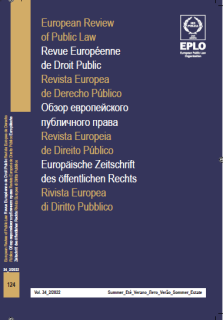
The Proceduralisation of Public Decisions in Public Utilities: Issues from a Comparative Law Study
Professor of Administrative Law at the University of Milano Bicocca
In Europe, in the past, local and governmental authorities established, directly or through their own public companies, the characteristics of the offer of essential services. However, since the liberalisations of the nineties, those decisions are measured in the market environment (whether real or potential). In this research, these questions are investigated with reference to the procedures for the formation of quality standards and tariffs relating to certain essential services (such as electricity and gas, rail transport and electronic communications) in Italy, France, the United Kingdom and Spain. The research ends with a reflection on the elements that emerged from the comparative analysis, especially under the point of view of distinction between regulation and “political” functions. Comparative research shows that consultation passes from an instrument of “democratisation” of authoritative public power to an instrument for organising economic decisions in liberalised markets (or in markets that are in the process of being liberalised), indispensable for acquiring knowledge and correcting their failures.
En Europe, dans le passé, les autorités locales et gouvernementales établissaient, directement ou par le biais de leurs propres entreprises publiques, les caractéristiques de l’offre de services essentiels. Mais depuis les libéralisations des années 1990, ces décisions prennent en compte l’environnement de marché (réel ou potentiel). Dans la présente étude, ces questions sont examinées en référence aux procédures de formation de normes de qualité et de tarifs relatifs à certains services essentiels (tels que l’électricité et le gaz, le transport ferroviaire et les communications électroniques) en Italie, en France, au Royaume-Uni et en Espagne. L’étude se termine par une réflexion sur les éléments qui ressortent de l’analyse comparative, notamment sous l’angle de la distinction entre fonction de régulation et fonction “politique”. L’examen comparatif montre que la consultation passe d’un instrument de “démocratisation” de la puissance publique autoritaire à un instrument d’organisation des décisions économiques sur les marchés libéralisés (ou en voie de l’être), indispensable pour acquérir des connaissances et corriger leurs défaillances.





















